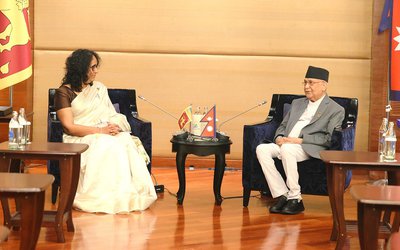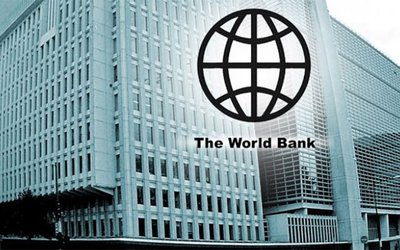
As most of the farmers of the mid-western hills, Lekhendra Shahi had been struggling to achieve subsistence from his farming. Relying on the rain with no irrigation facilities, his farm produces food that barely lasts four months a year.
Along with Shahi, hundreds of farmers and their families in Nada VDC, where there is a very scant supply of water and irrigation, depend on the monsoon rains, which are becoming increasingly unpredictable with the changing climate conditions.
As the weather patterns change, villages like Nada suffer from an acute shortage of water. Villagers have been facing the rising calamity and believe that climate change is the key contributing factor.
Since the Rudhakhola Irrigation came into operations, villagers' pessimism has changed to hope. With support from NCCSP, the local people constructed Rudhakhola Irrigation project in 2014. Implemented by NCCSP, at a cost of Rs 800,000, with the additional manual labor provided by the local communities, the project is helping to irrigate large chunks of land.
“For the first time, my farm has been producing food enough to last eight months, enough to feed my 12 family members,” explains Lekhendra, relieved that he will not have to travel to India or the Gulf to find work as a laborer to support his family.
Prior to the irrigation system, Lekhendra’s family produced barely 2.5 quintals of rice over 9 ropanis (about half hectares) of farmland. Now, he is able to harvest nearly 4 times that amount. He is now producing enough vegetables to sell a surplus at the local market and is already planning to re-invest his profits into his farm in hopes of a better life for his family. Forty four other farming households like Lekhendra’s are also benefitting remarkably from the new irrigation system in the VDC.
NCCSP is reaching out to the vulnerable communities such as Lekhendra’s across the mid-west region, helping them improve their livelihoods and become less dependent on a changing weather pattern.
“It is a pride for Nepal to see NCCSP stand out as one of the best programs in COP 21. As a program manager, I feel proud to say that the program chosen by the poor and vulnerable communities for themselves had a high chance to succeed. NCCSP is an example. NCCSP received the recognition as a good practice to linking climate change adaptation to the local and national level planning process. I am proud to have presented NCCSP case on the side event organized by NWP on 30 November 2015. I had highlighted the reliability elements of the program and how other LDCs can benefit from its experiences, as well as the challenges faced in implementing the program in climate vulnerable communities which are in the remotest parts of the country,” said Naresh Sharma, Program manager of the project.
The project covers 14 districts of Nepal - 3 in far-west (Achham, Bajura and Kailali) and 11 in the mid-west (Bardiya, Dolpa, Humla, Jumla, Mugu, Dailekh, Jajarkot, Kalikot, Dang, Rolpa and Rukum), NCCSP aims to ensure the poorest and most vulnerable communities in Nepal adapt to the effects of climate change.
Supported by DFID, European Union and UNDP, Ministry of Population and Environment is implementing this program through the District Development Committees.
This is the first project run with the involvement of various stakeholders, Ministry of Population and Environment, Ministry of Federal Affairs and Local Development, regional offices, VDCs and DDCs, which are implementing LAPA.
According to Ministry of Population and Environment, 100 LAPAs developed in 14 districts of mid and far western regions of Nepal providing technical support to 550,000 women and girls, and 450,000 men and boys with reduced vulnerability due to local adaption and disaster risk reduction actions by 2015.
Over 500,000vulnerable people, 55% women, have already received access to climate resilient adaptation technology practices.
Similarly, 190,000 women and 170,000 men with access to clean energy technologies, 500,000 people living in VDCs with effective adaptation actions improved gateways to resilience in the last five years.
“As NCCSP is our successful project, we have already requested EU and DFID to provide support for us to implement the second phase covering more districts,” said Vishwendra Paswan, minister of population and environment.
- IME GROUP: Expands Into Paper Industry
- Mar 24, 2025
- CPN UML: Instigated By India
- Mar 23, 2025
- ADB’S CHIEF ECONOMIST: Nepal Reduces Poverty
- Mar 11, 2025
- FM DR. DEUBA: A Successful Visit
- Mar 11, 2025
- MD GHISING: Target Of Personal Grudge
- Mar 09, 2025














